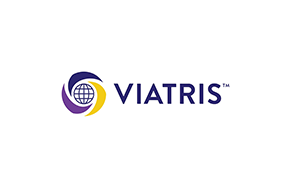The Importance of a Global, Resilient Supply Chain to Access
Published 3 hours ago
Submitted by Viatris

People everywhere need access to the right treatment at the right time. However, far too many people face barriers getting the care they need. Factors such as geography, income, education, gender, age, race, ethnicity, sexual orientation and other circumstances can all too often adversely impact access to healthcare and, as a result, a person’s ability to live a healthy life.
Multilateral engagements and collaborative efforts from a wide set of public, private and civil society stakeholders are essential to effectively work towards global health equity between and within geographies. About half of the global population is not able to receive essential health services, so there is much to be done worldwide to ensure access to prevention, treatment and care.1
Healthcare systems across the world are facing mounting and combined challenges of building back from the COVID-19 pandemic, an aging population, the growing burden from non-communicable diseases (NCDs), and a growing demand for healthcare workers while often grappling with budgetary and fiscal constraints.
As Viatris, we seek to be a partner in building access at scale and more resilient healthcare systems. The core of our work lies in developing, sourcing, producing and distributing high-quality medicines to people around the world. The base of our business is a vast and diversified portfolio of generic medicines and trusted brands, serving an important role in making essential health products available and accessible, and preventing and treating some of the world’s most pressing health conditions. As noted previously in this report, we are also increasingly adding more innovative treatments to our portfolio to further help address unmet needs. In 2024, Viatris supplied more than 240 medicines on the WHO Essential Medicines List, representing nearly 50% of the total list.
Medicines alone will not be enough. To that end, we are engaging with the healthcare community to empower healthcare professionals, advocating for public policies that advance access to quality medicines and building systems that sustain medicine availability. Our global policy priorities are to advance access to quality medicines; strengthen resilient, global supply chains; and build future access.
Partnerships are fundamental. We partner with members of the global, regional and local health community. Meaningful and lasting change can only be achieved by fostering collaboration, enhancing quality of care and driving innovation. Our partners include a variety of stakeholders, including governments, healthcare providers, patient organizations, pharmaceutical companies, not for profits, logistics partners, intergovernmental organizations, academia and others. Through sharing resources and leveraging expertise, these alliances can create more sustainable and effective healthcare systems.
Supplied high-quality medicines to ~1B patients around the world2
- Provided products that address the WHO’s top 10 leading causes of death globally
- Sold >80 billion doses of medicine across >165 countries and territories
- Supplied medicines to ~90% of low- and lower- middle-income countries
- Provided 50 products on the WHO Prequalification of Medicines List
- Supplied >240 medicines on the WHO Essential Medicines List (EML), representing nearly 50% of the total list
- Supplied >135 medicines on the WHO Essential Medicines List for Children, representing >35% of the total list
The Importance of a Global, Resilient Supply Chain to Access
We believe our global supply chain, with its breadth, resilience and established efficiencies, continues to be the best structure for maximizing supply availability and enabling access to medicines for patients, regardless of geography. No country makes every medicine it needs, and no medicine is made in every country.
The global supply chain enables efficiencies and economies of scale, which are important for cost-effective production while adhering to globally recognized quality-assurance standards. Further, the global and diversified supply chain supports risk diversification and building resilience. By leveraging suppliers and production sites across countries and regions, we enhance the ability to manage shocks affecting any single country or region. Whether due to spikes in demand from changing disease patterns or disruptions to supply based on local disasters, the agility achieved through a strong, flexible global network improves the ability to respond quickly to changing demand and evolving patient needs by moving supply where it is needed.
Viatris leveraged its supply chain capabilities in 2024 to overcome challenges by providing alternate supply to mitigate the risk of supply shortages in times of peak demand. In New Zealand, for example, when demand for a common menopause treatment patch grew by more than 260% in three years, Viatris was able to leverage its supply chain to quickly provide an alternative supply, ensuring continued access for New Zealanders. Learn more about the importance of a global, flexible supply chain here.
Customer Service
In 2024, our global customer service level was 93%. Our customer service level metric is on-time in-full (OTIF) delivery to our customers. On-time is customer specific and measured against customer agreements. In-full is 100% of volume ordered. It is important to Viatris to measure service from our customers’ perspectives.
Our Work to Advance Access and Public Health
In 2024, Viatris provided medicines addressing the top 10 of the WHO’s leading causes of death globally.
We have taken a deliberate approach to expand access to our wide portfolio across geographies and income levels, where we seek to build and establish sustainable markets by nurturing innovation and competition. Our reach is enabled by a strong global infrastructure that serves patients in more than 165 countries and territories.
Viatris’ current companywide access goals run from 2022 to year end 2025. The goals seek to advance access and reach of digital and global healthcare professional (HCP) education and provide access to ARV treatments for patients living with HIV. To drive progress on these goals and make a meaningful impact, we pursue holistic approaches, partnerships and cross-sector collaborations.
Supporting Healthcare Workers for More Resilient Healthcare Systems
Healthcare workers, especially those in primary care, are essential to improving the health and wellbeing of individuals and communities. They are often the first point of contact for people seeking healthcare services and key for people accessing the care they need. Demand for healthcare workers is growing, and it’s estimated there will be a shortage of about 15 million healthcare workers by 2030, with needs especially acute in low- and LMICs.3
In 2024, we continued our dedicated work with partners across the world to empower healthcare workers to contribute to more resilient and healthier systems. Viatris supports programs, education and resources both at a local level as well as through digital resources that are more broadly accessible. We work to leverage medical partnerships and thought leadership to help local standards of care and optimize patient outcomes.
Putting Patients First: Advocacy
Those living with a disease or having experienced an urgent medical need know first hand that treatment does not begin or end with a medicine. In many cases, people need advocates on their side, helping to address barriers to diagnosis and treatment, promoting health infrastructure and training and supporting patient education and disease awareness. Poor health literacy and misinformation are examples of barriers to diagnosis and treatment adherence. Viatris works with partners across geographies to help improve health literacy.
We work closely with organizations including the Boomer Esiason Foundation, the MS Society, the Cystic Fibrosis Foundation and many others to support patients. Examples of this work follow:
- In Australia, Viatris collaborates with the Eczema Association Australasia to develop patient education materials on allergic rhinitis.
- In Washington, D.C., Viatris supported Patients Rising’s “We the Patients Week on Capitol Hill,” a legislative conference with 60 patient advocates from over 20 states meeting with 70 congressional offices advocating for health care policies focused on addressing barriers and inequities to care.
- Viatris supports the MS Foundation’s month-long MS awareness campaign, which includes information on how to support your immune system, gender differences in MS and how to advocate for more research funding. This work included distributing information toolkits to about 70,000 patients and the presentation of two live and four virtual education events.
- In the U.S., Viatris backed the implementation of The CHEST organization’s First 5 Minutes® program, which aims to provide clinicians with tools and strategies to build rapport, practice empathetic listening, and navigate cultural differences effectively. Through e-learning modules and practical exercises, the program teaches techniques like cultural humility and compassionate communication, tailored to conditions like COPD.
- In Europe, Viatris supports the Active Citizenship Network (ACN), a civil society organization representing more than 200 professional societies and patient organizations in the EU, and its annual European Patients’ Rights Day. Viatris has been a key partner in helping ACN strengthen patient voices in healthcare.
- Viatris supports the Allergy & Asthma Network: English and Spanish COPD Virtual Conference Series, a program providing education, including for Black and Hispanic communities about COPD and engage patients and caregivers in research.
- We support the We Are ILL organization to support and educate Black women diagnosed with multiple sclerosis (MS).
View the full Viatris 2024 Sustainability Report.
Sources
1 Billions left behind on the path to universal health coverage
2 The number of patients served is an estimate calculated using internal sales data (global volume of doses sold in 2024 in all markets as aligned with IQVIA standard units), divided by estimated per patient usage, which is based on treatment dose, treatment duration, and treatment adherence as estimated by Viatris Medical Affairs based on approved label indication and instructions for use, current international guideline recommendations, and common usage in clinical practice. Patients using multiple Viatris medicines may be counted as multiple patients. Certain adjustments were applied to 13 account for acceptable alternatives to the patient usage factors noted above, and rounded to the nearest hundred million. Estimates may be subject to reassessment.
3 Global Health Workforce Labor Market Projections for 2030 | Human Resources for Health

Viatris
Viatris
Viatris Inc. (NASDAQ: VTRS) is a global healthcare company empowering people worldwide to live healthier at every stage of life. We provide access to medicines, advance sustainable operations, develop innovative solutions and leverage our collective expertise to connect more people to more products and services through our one-of-a-kind Global Healthcare Gateway®. Formed in November 2020, Viatris brings together scientific, manufacturing and distribution expertise with proven regulatory, medical, and commercial capabilities to deliver high-quality medicines to patients in more than 165 countries and territories. Viatris’ portfolio comprises more than 1,400 approved molecules across a wide range of therapeutic areas, spanning both non-communicable and infectious diseases, including globally recognized brands, complex generic and branded medicines, and a variety of over-the-counter consumer products. With more than 38,000 colleagues globally, Viatris is headquartered in the U.S., with global centers in Pittsburgh, Shanghai and Hyderabad, India. Learn more at viatris.com and investor.viatris.com, and connect with us on Twitter at @ViatrisInc, LinkedIn, Instagram and YouTube.
More from Viatris

